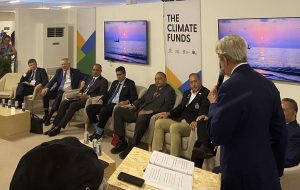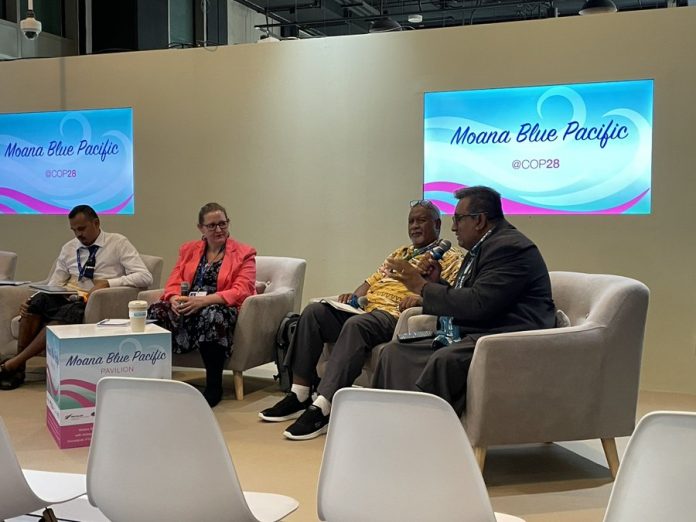By Pita Ligaiula at COP28 in Dubai, UAE
The General Secretary for the Pacific Conference of Churches (PCC) Reverend James Bhagwan, has drawn attention to the challenges facing the Pacific Islands and their efforts to claim their priorities in the ongoing climate negotiations at COP28 in Dubai.
When questioned about strategies for the Pacific to influence outcomes in the remaining days of COP28, he stressed the collaboration within alliances such as Pacific Islands Developing States (PSIDS) and Alliance of Small Island States (AOSIS) maximising the strength of the G77 and China.
“Working together is what we’re trying to see,” he said.
Reverend Bhagwan also highlighted the need for unity in pushing for critical issues like the phase-out of fossil fuels.
“That’s the biggest ask that we have at the moment given the statements that have been made by COP28 President around that issue,” he said.
He voiced the sensitivity of these discussions and acknowledged that leaders are actively working within the negotiation space to include the fossil fuel phase-out into the final text.
Turning attention to the Loss and Damage fund, Reverend Bhagwan highlighted the disparity between pledges and actual needs.
“If you look at the context of how much is really needed, it is still way too small.
“This is a US$400 billion annual fund, and we also recognise that some of these commitments people are going to go back to their Parliament, congress to get those funds approved. But I think we have to really pay attention to who is stepping up and how much is stepping up by,” said Reverend Bhagwan.
Concerns were raised about attempts by some countries to water down the focus on small island states.
He stressed the importance of rallying negotiators to prioritise the most affected and least contributing countries in accessing the Loss and Damage Fund.
“I know some of our leaders who are really working hard even active at the negotiation space to try and get fossil fuel phase out in the final text and the reality of many of these issues ‘we are running out of time’,” he said.
When questioned about the significance of financial commitments to the Loss and Damage Fund, especially from major emitters, Reverend Bhagwan acknowledged the contributions made by some countries but remained cautious.
“We will wait to see when the money is in the bank.
“When people make the pledges, they should get on the phone and show us the money going into the account,” he said.

Reverend Bhagwan also said to monitor the trade-offs associated with significant funds and emphasised the importance of civil society questioning the costs to the Pacific.
He urged continuous vigilance in the fossil fuel non-proliferation treaty space, recognising the critical role it plays in shaping the future of the Pacific Islands and the global climate agenda.
SOURCE: PACNEWS














